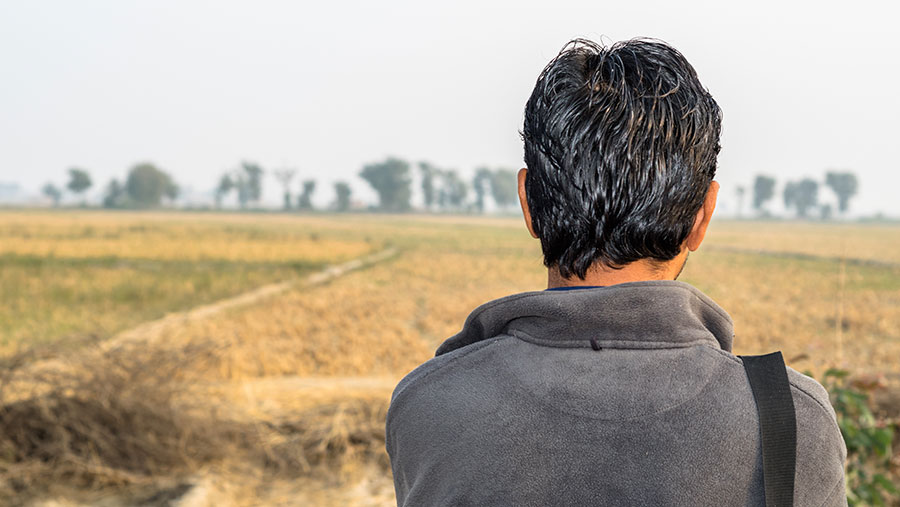Covid is ‘tip of the iceberg’ for farm mental health epidemic
 © Ali Magsi/Adobe Stock Photo
© Ali Magsi/Adobe Stock Photo The Covid-19 pandemic has exacerbated the existing poor mental health problems in farming, new research has found.
Researchers from the universities of Reading, Exeter and Sheffield found that while Covid has led to worsening mental health among farmers, many were already struggling pre-pandemic.
Farmers reported that reductions in basic payments, regulatory uncertainty, rural isolation, financial concerns, extreme weather and additional pressures on food production had contributed to the problem.
See also: Farmers encouraged to ‘open up’ for Mind Your Head week
Now the researchers are calling for a more joined-up approach from governments, charities and industry organisations to tackle poor mental health in farming and enable better access to support mechanisms for those in need.
The findings from the Landscapes of Support for Farming Mental Health project were revealed to MPs, farm leaders and academics on Wednesday (16 February).
Inquiry launched
Neil Parish MP, chairman of the Environment, Food and Rural Affairs select committee, who attended the presentation of the research, said:
“Farmers and others in these communities often face stress caused by isolation, insecure incomes and unpredictable weather.
“My parliamentary committee has launched an inquiry into rural mental health, and I’m hoping we’ll learn valuable lessons from the ‘Landscapes’ project.
“Expert research into this issue from the Landscapes team and others will help inform the recommendations we’ll eventually make to the government about how its support to rural communities on mental health matters can be improved.”
David Rose, from the University of Reading, led the research. “Although Covid was a stressor, we found there were a huge number of other stressors that affected farming mental health,” he told Farmers Weekly.
“The online criticism, rural crime, the weather and climate change, the crop and animal disease, but also all the uncertainty with what’s happening post Brexit with agriculture.
“It’s not just England with ELM, it’s all of the other devolved administrations too – farmers not quite knowing what support is going to look like in the future, as well as the disruption associated with labour supply and the pig crisis. All are Brexit-related, and they came up time and time again.”
More than 60% ‘stressed’
Dr Rose said more than 60% of farmers reported being “more stressed and anxious” during or since Covid – and only 7% said they were less stressed. “We’re potentially storing up a lot of problems that could worsen further down the line,” he added.
The researchers are calling for more government investment in rural mental health care and support to train mental health first-aiders, especially people who come into contact most with farmers, such as vets, agronomists and inspectors. Better rural broadband would also help farmers feel less isolated, they said.
For the research, 207 farming families were surveyed in November and December, and 93 interviews as well as 22 in-depth interviews were undertaken last summer with people who support farming mental health.
The project received £190,000 in funding from the Economic and Social Research Council, as part of UK Research and Innovation’s rapid response to Covid. A full report will be published this spring.

